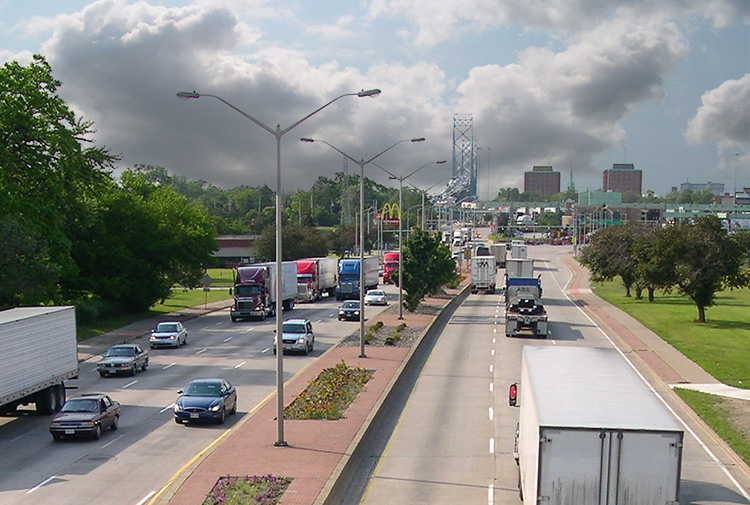
 |
|
|
|
|
|
|
Municipal Carbon Budgets: |
 Municipal Carbon Budgets: Windsorís latest contribution to its climate emergency portfolio was the publication of a carbon budget. With the budget, Windsor joins a small group of municipal pioneers in Canada examining greenhouse gas emissions with an equity lens. The data in the carbon budget reveals Windsorís massive carbon footprint and, within a few years, the exhaustion of its budget. The good news is that the carbon budget fulfils an action item from Windsorís earlier climate emergency declaration commitments. It also creates another component of data transparency and accountability from the municipal government to its constituents. But the true test of the value of a carbon budget is whether it helps reduce carbon emissions. If the city can adopt the carbon budget into its planning and decision-making, then there is a chance that Windsor can meet its ambitious climate goals. Municipalities across the country are responsible for over forty percent of Canadaís greenhouse gas emissions. It is a huge climate responsibility for cities to take on, but since there have been decades of ignoring the problem there is no time to waste. Windsorís carbon budget of 26.35MT is a forever budget. Based on scientific analysis, there is only so much pollution that our planet can absorb before catastrophic climate warming occurs. Windsor, like all cities in Canada, is classified a high emission, high GDP city by methodology of the IPCC C40 Cities Convergence and Contraction; meaning there is a great deal of work to do for the community to live within its carbon means. Windsorís carbon level of 8.9 tonnes per capita (2018) must be lowered to 3.2 by 2030 and net zero by 2050. In other words, at current rates of emission, Windsorís 2030 carbon budget threshold will be exhausted by 2025 and the 2050 threshold by 2029. The federal government intends to legislate a net zero 2050 target. When the federal legislation comes into effect, it is likely that Windsor will have to vastly improve its emission targets and timetable that it is currently implementing in its Community Energy Plan. For Windsor to abide with the Global Covenant of Mayors for Climate & Energy and ensure its access to grants, then it will have to eventually comply with federal net zero legislation. Accelerating and expanding the ambition of existing municipal climate plans will be a necessary action to achieve a net zero goal. Municipalities across Canada have been too slow to focus on the pathway to net zero emissions. Only Edmonton has formally adopted its carbon budget. Windsor has produced a carbon budget, but without formally adopting it as city policy. Without a carbon budget to contextualize the goal and provide the necessary data for governments and the public to use then achieving net zero will be more difficult for municipalities. Declaring a municipal climate emergency while not implementing actions and policies to achieve net zero emissions quickly will undermine municipal governance and public safety. A few communities around the world like Oslo, Norway have shown what municipalities can do toward the goal of net zero. Canadian municipalities have tools available, such as carbon budgets to help achieve net zero emissions, but they need the political will to implement the actions that are required to help alleviate the climate crisis. A carbon budget is specifically designed to show the pathway to net zero. Strategies, as outlined in Windsorís Climate Emergency Declaration report, provide some implementation options. Policies such as climate risk analysis or a climate lens on council decisions will help provide transparency and accountability toward fulfilling the climate emergency declaration. Implementing a carbon budget policy would boost efforts to achieve net zero emissions, which we must achieve. However, there remain no silver bullets just a complimentary network of policies and actions moving us toward the vital target of net zero emissions, hopefully, no later than 2050. A blog from the Urban Climate Alliance. The Urban Climate Alliance is a network of four Ontario-based municipal environmental organizations working to take climate action at the city level. Members include Ecology Ottawa, Environment Hamilton, the Citizens Environment Alliance and Toronto Environmental Alliance.  |